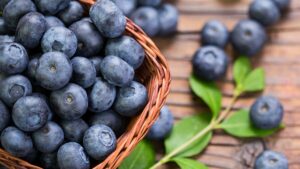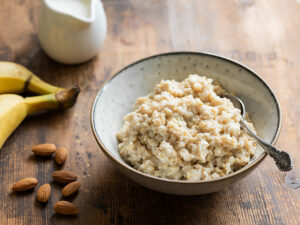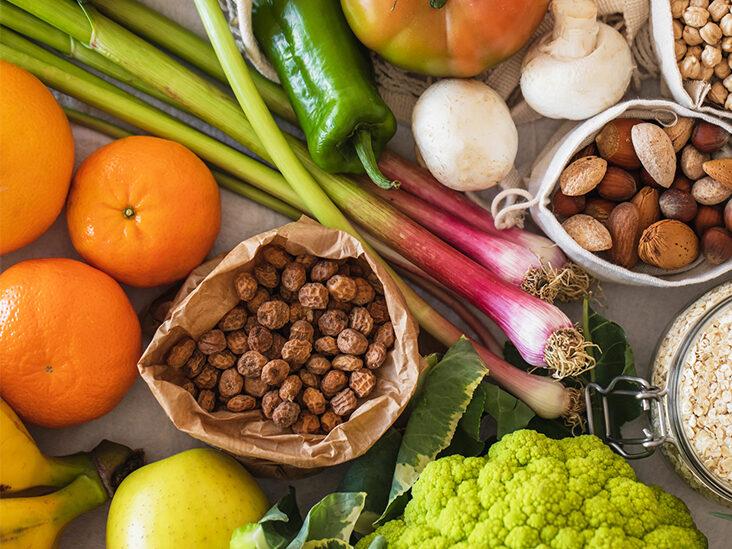If you’re like most people, you probably don’t get enough fiber in your diet. This is a shame, because fiber-rich foods offer a wealth of health benefits. In this blog post, we will discuss the many benefits of eating fiber-rich foods. We’ll also provide some tips on how to add more fiber to your diet. So read on and learn how to improve your health by eating more fiber!
What Is Fiber?

Fiber is a part of carbohydrates that the body cannot digest. There are two types of fiber: soluble and insoluble. Both types are important for good health, but they have different effects on the body.
Soluble fiber: This type of fiber dissolves in water to form a gel-like substance. It is found in oats, beans, lentils, apples, and citrus fruits. Soluble fiber can help lower cholesterol and blood sugar levels. Soluble fiber has been shown to be helpful in preventing heart disease and type 2 diabetes as it absorbs water and swells, which helps to slow down digestion.
Insoluble fiber: This type of fiber does not dissolve in water. Rather, it adds bulk to the stool and aids in bowel movements. Insoluble fiber is found in whole wheat bread, nuts, and vegetables such as carrots, and cell is found in whole grains, wheat bran, nuts, and seeds.
Why Humans Cannot Digest Fiber?
Humans lack the enzymes needed to break down the bonds that hold together the long chain of carbohydrates that make up fiber. However, there are beneficial bacteria in the large intestine that can ferment fiber. This fermentation process produces short-chain fatty acids and several vitamins like biotin and vitamin K2. These short-chain fatty acids can be used for energy by the cells that line the large intestine.
Fiber-Rich Foods
There are plenty of fiber-rich foods you can munch on, here are a few of them:
Pears
These are so rich in fiber that just one contains almost 20% of the daily recommended intake. Just 1 medium pear contains about 5.5 grams of fiber.
Avocado
This MUFA-rich fruit is great not just in salads but also as a part of various dishes. One whole avocado has about 10 grams of fiber in it which is more than what you get in most other fruits.
Apple
Whoever said an apple a day keeps the doctor away clearly knew what they were talking about. Not only are apples an excellent source of fiber, but they also contain vitamins A and C, which are great for our immune system. Just a medium apple contains about 4 grams of fiber, which is around 20% of our daily recommended intake.
Strawberries
This list would be incomplete without mentioning berries. Just one cup of strawberries contains 3 grams of fiber, which is about 10% of your daily recommended intake. But that’s not all. Berries are also packed with important vitamins and minerals, including vitamin C, potassium, and folic acid. Plus, they’re a good source of antioxidants, which can help protect your cells from damage.
Blueberries

Blueberries are another type of berry that’s high in fiber. One cup of blueberries contains 3.6 grams of fiber or about 15% of the DV (28). Like other berries, blueberries are also a good source of antioxidants and have several health benefits.
Blueberries may improve heart health by reducing LDL (bad) cholesterol and inflammation. They may also help improve memory and cognitive function and protect against age-related decline.
Raspberries
Raspberries are an excellent source of fiber. A 1-cup serving provides 8 grams of fiber or 32% of the daily recommended value. In addition to being a good source of fiber, raspberries are also a good source of vitamins C and K as well as manganese.
Carrots
Carrots are so healthy that just one contains more than 10% of the daily recommended amount of fiber. Just one carrot has 3 grams of fiber in it. Carrots are also a very good source of vitamins A, C, and K. Carrots are a great food to eat if you’re trying to lose weight because they’re low in calories.
Beets
If you’re looking for fiber-rich food that’s also low in calories, beets are a great option. Just one beet has 3 grams of fiber and only 45 calories. Beets are also a good source of vitamins C and B6.
Cruciferous Vegetables
Brussels sprouts, cabbage, cauliflower, kale, and collards are all examples of nutrient-dense foods that contain fiber. These vegetables are a part of the cruciferous family. They’re low in calories but high in fiber and other nutrients that are essential for good health. Just one broccoli spear contains 3 grams of fiber.
These vegetables are also a good source of vitamins C, K, and A. They promote healthy skin and hair, strong bones, and a healthy immune system. Cruciferous vegetables may also help protect against cancer.
Fiber content per 100gm:
- Cauliflower: 2gm
- Cabbage: 2.5gm
- Brussels sprouts: 3.8gm
Beans and Lentils
Beans and lentils are excellent sources of fiber. Just one bowl of beans contains about 15 grams of fiber. That’s about 60% of the recommended daily intake for adults! Not to mention, beans and lentils are also rich in protein and other nutrients, making them a perfect food for vegetarians and vegans. In addition to their nutritional benefits, beans and lentils have also been shown to help with weight loss and management.
Fiber content per 100gm:
- Chickpeas: 17gm
- Kidney beans: 25gm
- Pigeon pea: 15gm
- Mung beans: 16gm
Oats
Beta-glucan in oats has been shown to lower cholesterol levels. This type of fiber can also reduce the risk of heart disease by helping to remove plaque from the arteries. Just half a cup of oats contains four grams of fiber.
Quinoa
This superfood is not only a complete protein, but it’s also packed with fiber. Just one cup of cooked quinoa provides 5 grams of fiber, which is about 20% of the recommended daily intake. Quinoa is also a good source of magnesium, iron, and manganese.
Nuts And Seeds
Just one ounce of almonds contains 3.5 grams of fiber, and one ounce of pumpkin seeds contains 2.9 grams. Adding nuts and seeds to your daily routine could help you reach the recommendation of 21-38 grams of fiber per day. But that’s not all these foods can do for you. Nuts and Seeds are also good sources of protein, healthy fats, vitamins, and minerals.
Fiber content per 100gm:
- Fresh coconut: 9gm
- Pistachios: 10gm
- Walnuts: 6.7gm
- Sunflower seeds: 11.1gm
- Pumpkin seeds: 6.5gm
Popcorn
100gm of popcorn contains around 13 grams of fiber, and it is a whole-grain food. This means that it provides all the benefits associated with eating whole grains, including a lower risk of heart disease, type 2 diabetes, and certain types of cancer.
Top Benefits Of Dietary Fiber

Fiber influences our gut like no other, here are the top benefits of dietary fiber:
- It keeps us regular: Fiber has a laxative effect on the body and can help to prevent constipation. When we are constipated, it means that our stools are hard and difficult to pass. This is because fiber helps to add bulk to our stools, making them softer and easier to pass.
- It lowers cholesterol: Fiber can help to lower cholesterol levels by binding with bile acids (a component of cholesterol) and preventing their absorption into the bloodstream.
- It stabilizes blood sugar levels: Fiber slows down the rate at which glucose is absorbed into the bloodstream, helping to stabilize blood sugar levels. This is particularly beneficial for people with diabetes or prediabetes.
- It keeps us feeling full: Fiber is very filling and can help to control hunger and prevent overeating. This is because it takes longer for the stomach to break down fiber-rich foods, meaning we feel fuller for longer.
- It may reduce the risk of some diseases: Some studies have shown that a high intake of fiber may reduce the risk of heart disease, stroke, and certain types of cancer such as colon cancer.
Conclusion
Eating a diet rich in fiber has many health benefits. Fiber-rich foods can help you lose weight, lower your cholesterol, and control your blood sugar levels. They can also keep you regular and reduce your risk of heart disease, stroke, and certain types of cancer.
Consider contacting FitMantra for additional information on nutrition and fitness. You can also get in touch with their nutrition experts through our online nutrition counseling, who can guide you through the process and help you achieve your fitness goals. You can also lose weight with the help of our weight loss program. Download our FitnessApp on Android to know more about us.
